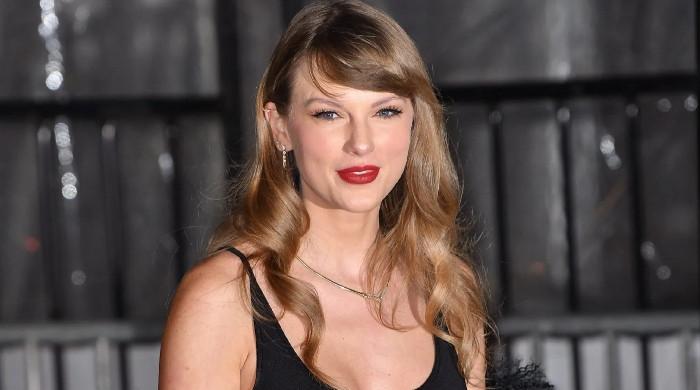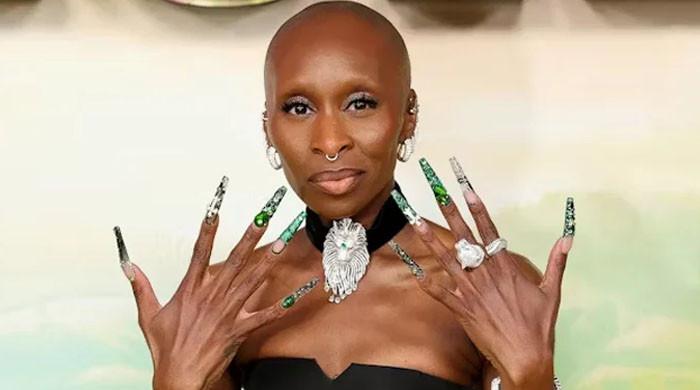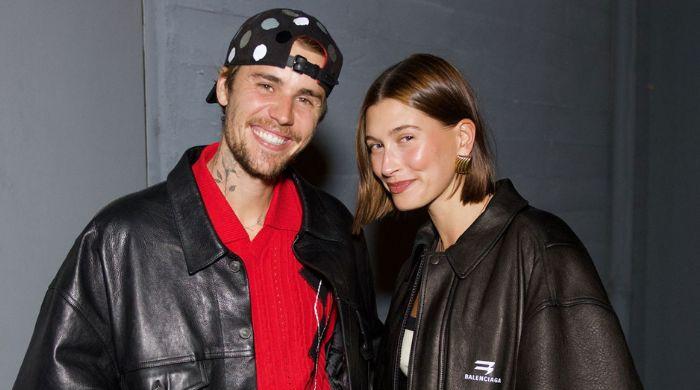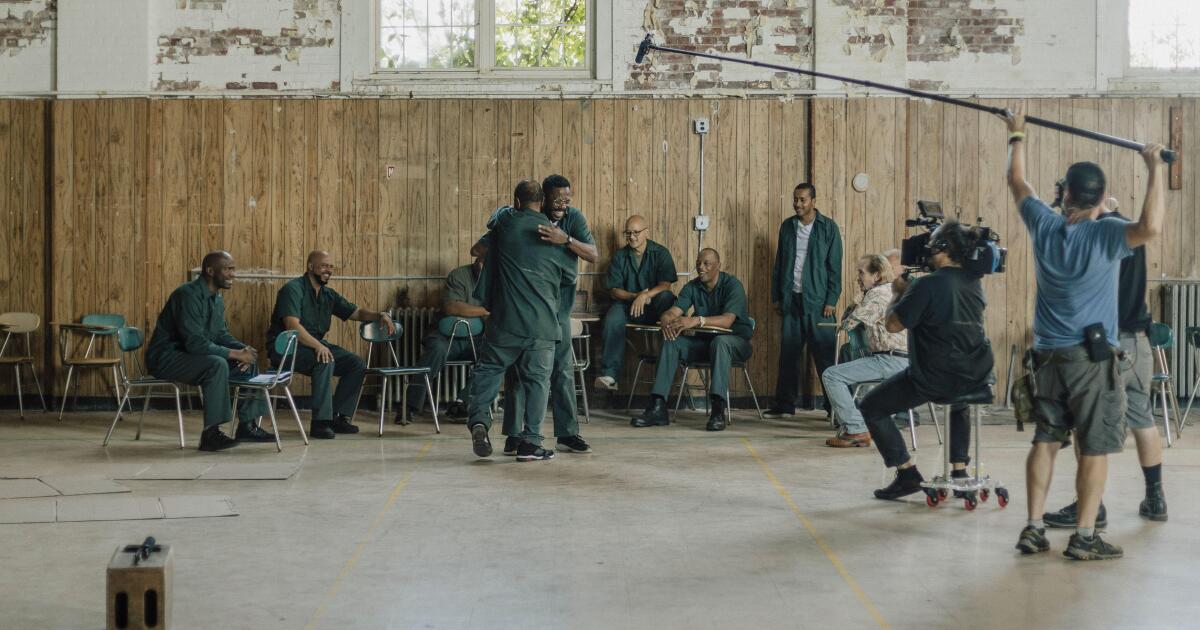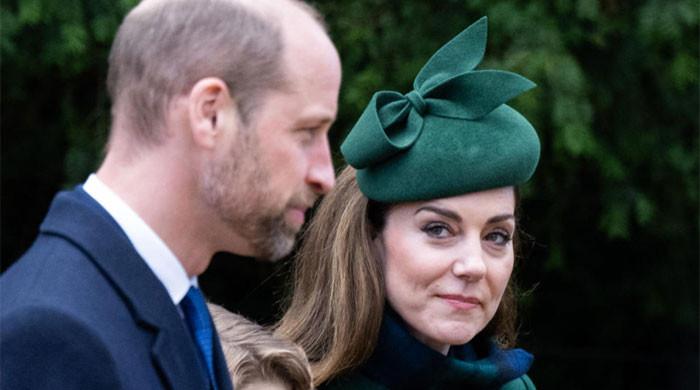In her bold directorial debut, “Blink Twice,” actress-turned-writer-director Zoë Kravitz doesn’t flinch for a moment, even when her film might benefit from looking away. She maintains a steely gaze in this caustic social horror fable, laced with black comedy, that has nods to Jordan Peele’s “Get Out,” while Kravitz chooses to aim her artistic guns at sexual politics, not necessarily race. Co-written with E.T. Feigenbaum, “Blink Twice” is a big, bold swing, even if its message gets muddled along the way. It’s clear that Kravitz wants to make a statement with this film. What’s less clear is what exactly that statement might be.
“Blink Twice” opens with a dead-eyed scroll in a dingy bathroom; our protagonist, Frida (Naomi Ackie), catatonically swipes her phone screen on the toilet, checking out others’ lives on Instagram, before she and her roommate Jess (Alia Shawkat) rush to work, serving champagne and canapés at a swanky gala hosted by a disgraced tech mogul, Slater King (Channing Tatum). Yearning to feel part of something bigger, the caterers don slinky dresses and join the party, warmly welcomed into the inner circle of wealthy men as beautiful young women often are. Are you jetting off to Slater’s private island with his friends? Frida’s been craving a vacation.
Kravitz observes this well-heeled milieu well, and what he deftly achieves in “Blink Twice” is an absurdist comedy of gendered manners once the boys (Tatum, Simon Rex, Haley Joel Osment, Levon Hawke and Christian Slater) and girls (Ackie, Shawkat, Adria Arjona, Liz Caribel and Trew Mullen) land at Slater’s secluded estate nestled in a lush tropical forest. Dressed in matching white bikinis and resort wear, the girls are plied with fine wine, fine food and good drugs. The surroundings and their accoutrements couldn’t be more luxurious, but Kravitz renders this world with a sick, disturbing hyperreality.
Channing Tatum in the movie “Blink Twice.”
(Zachary Greenwood)
Everything seems out of place in “Blink Twice” — intentionally so. The style is quite jarring, with an abrasiveness that is almost irritating to watch. The camera angles are odd and the flow is uneven, as Kravitz and editor Kathryn J. Schubert construct scenes with seconds and even minutes missing. The images created by cinematographer Adam Newport-Berra are oversaturated, too bright, and have an almost searing clarity and sharpness; the sound design is also too pronounced and too high-pitched. This postcard-perfect setting becomes almost unbearable to endure.
Of course, something isn't right. It's a terrible truth to realize that you can have all the good things and still be having a bad time. Jess finally realizes this, after a series of endless nights of fun, fun, fun, with the girls running around the lawn in a psychedelic-induced stupor after their mind-numbing dinners with the men. They don't have phones, no one knows what day it is, and mysterious injuries keep popping up. When Jess goes missing and no one seems to remember she was there, Frida must emerge from the fog and find out what happened to her best friend.
Kravitz nails the social analysis and a dark, satirical tone, but as the film becomes a horror thriller, her directorial execution falters. There are some dynamic shots and compositions and overt references to her inspirations, but the element of suspense and her ability to stage a sequence are lacking. She doesn't shy away from the horrific truth at the heart of her story (that's best left to the viewer), but Kravitz miscalculates the careful distinction between “conceal” and “reveal” that's necessary for skillful horror filmmaking. She makes the mistake of showing us the monster plainly, forgetting that what the audience can't see is far scarier than what they can see.
Despite its flaws, “Blink Twice” demonstrates a directorial vision full of fresh and bold choices, at least in terms of style (narratively, the script is riddled with ideas that are rather simplistic and absurd). It’s a good first effort, and Kravitz gets fantastic performances from Ackie, Arjona and especially Tatum, whose seductive, silent menace simmers impressively.
Yet Kravitz never quite gets down to exactly what she wants to say about sex, power and revenge. A deeply cynical coda undermines any empowerment themes that might have naturally emerged from this story. Successfully blending righteous anger, sardonic humor and a fist-pumping “girl power” narrative is a pretty tall order (whether that’s even what she wants to do remains a mystery). The relentless emptiness robs the film of any impact or meaning. Maybe that’s the point, but it doesn’t feel right.
Walsh is a film critic for the Tribune News Service.
'Blink twice'
Classification: R, for strong violent content, sexual assault, drug use and language throughout the film, and some sexual references.
Duration: 1 hour, 42 minutes
Playing: In general release on Friday, August 23



